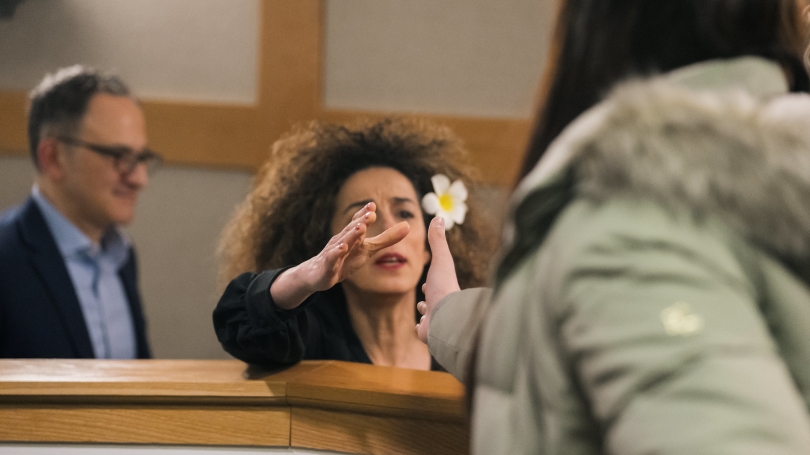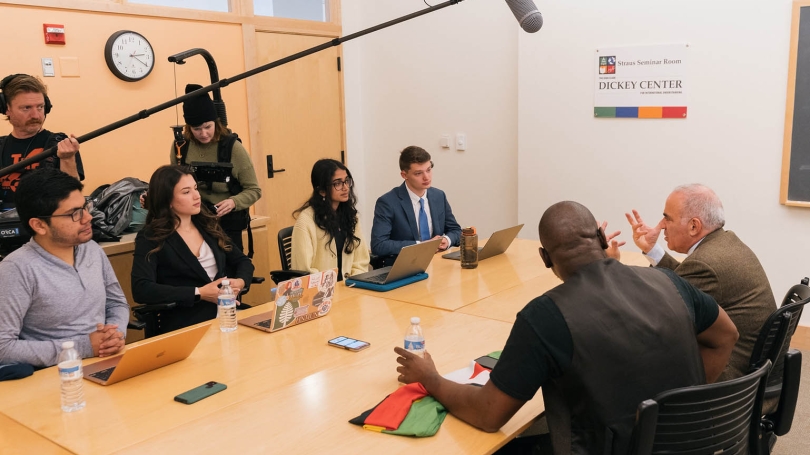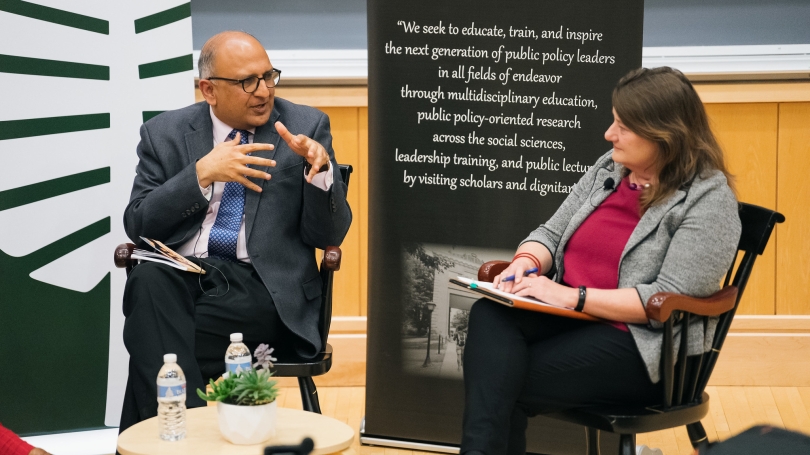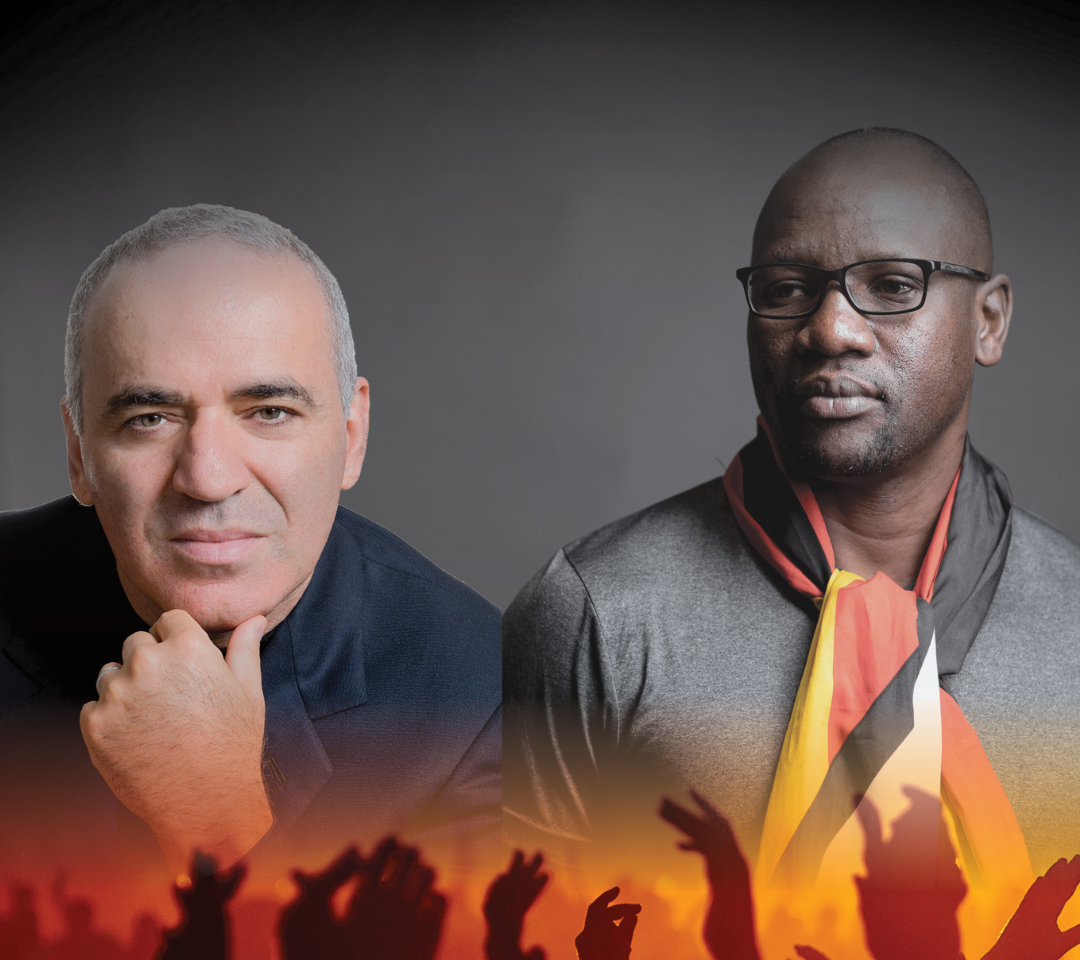
The Dickey Center and the Dartmouth Political Union (DPU) student group hosted Iranian-American journalist and activist Masih Alinejad on February 8. Arguing against Gender Apartheid in Iran, she made the case for an end to the oppression of women, and urged students to speak up for human rights. Learn more about her visit here.

Garry Kasparov (r) and Evan Mawarire meet with the student editors of the World Outlook podcast while visiting Dartmouth as part of the Dickey Center's Dissent & Democracy Initiative.

Indian academic Pratap Mehta in conversation with Victoria Holt of the Dickey Center.
- About
- Programs
- Student Opportunities
- For Faculty
- News & Events
Back to Top Nav
Back to Top Nav
Back to Top Nav
Back to Top Nav
Back to Top Nav
